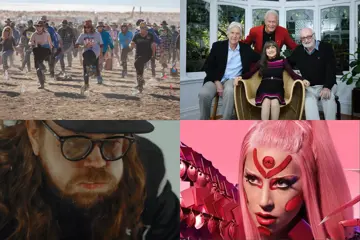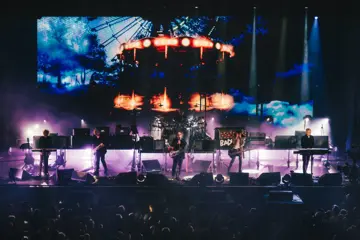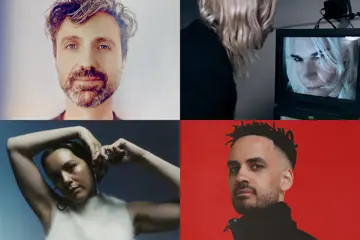 Paul Thomas Anderson
Paul Thomas AndersonSomewhere along the way, American filmmaker Paul Thomas Anderson made the leap from boy wonder to genuine artist. Early movies like Boogie Nights and Magnolia indicated that Anderson was a gifted stylist and storyteller with an expansive and generous worldview but the 2007 release of There Will Be Blood, his compelling, profound tale of ambition run amok, seemed to lift him to the next level (and having Daniel Day-Lewis deliver one of his most powerful performances to date in the lead role sure didn't hurt either).
It certainly generated a great deal of anticipation for Anderson's follow-up project, a searing story of people searching for meaning in post-WWII America. With The Master, starring Joaquin Phoenix as a booze-addled, traumatised ex-soldier and Anderson regular Philip Seymour Hoffman as the charismatic leader of a self-help movement called 'The Cause', he's once again created something that is psychologically and emotionally resonant.
But while Anderson is undeniably an artist, he's also someone who wants his work seen by as many people as possible. And one of the first questions he asks the journalists assembled to interview him is whether they feel audiences will venture out to see The Master in cinemas. “In America, and I'm sure it's the same here, something may do well in the big cities but it's harder and harder for a film like this to reach out past those areas,” he says. “They always have a life beyond the theatre but financially the people behind it don't want a return on their investment ten years on. I mean, I knew The Master was a little different but I didn't think it was that fuckin' different.”
He knew that audiences were interested in The Master early on, partially because a follow-up to the acclaimed There Will Be Blood was going to be something of a hot ticket. “There Will Be Blood was a tremendous success for us,” he admits. “It was like a surprise – people who were into the stuff we'd done were looking forward to it but there was some wider-reaching thing that happened with that film. It was that story, it was that time or that actor, whatever. But it definitely created more interest in what this was.”
Don't miss a beat with our FREE daily newsletter
But the subject matter, especially its seeming links to the controversial belief system of Scientology, also sparked interest – not all of it worthwhile, according to Anderson. “Internet chatter is this big,” he says, spreading his arms wide. “And this deep,” he adds, holding two fingers close together.
There's nothing precious about Anderson's approach to his work – he wants to hear people's opinions on its themes and ideas, and he's happy to engage in conversation rather than sit back and idly recite stock answers. And when quizzed about the inspiration Scientology had upon The Master, he becomes visibly animated.
“There's no elephant in the room,” he says. “I've been nothing but forthcoming and forthright about what this film is inspired by. I've said it over and over again; you've probably read it. It's completely clear, what we've done. When I made There Will Be Blood, no one wanted to talk about [oil tycoon] Edward Doheny. How come? How come you didn't want to find out what was similar or dissimilar there? Nobody fucking cared. But this word comes up and people get curious, people get spooked... when we were making the film, when it came to that anticipation we were talking about, it was said that we were making a movie about Scientology and that was frustrating because we knew we were making something else. If it was about Scientology it wouldn't be called The Master and it wouldn't be this story.”
WHAT: The Master
WHEN & WHERE: In cinemas Thursday 8 November















